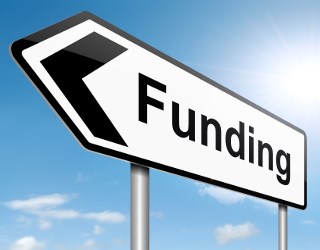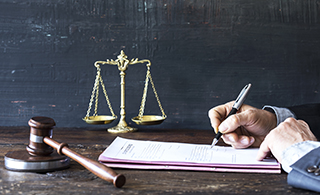
OVW Fiscal Year 2021 National Service Line for Incarcerated Survivors of Sexual Abuse Solicitation
OVW Fiscal Year 2021 National Service Line for Incarcerated Survivors of Sexual Abuse Solicitation has been closed on 25 Aug 2021. It no longer accepts any bids. For further information, you can contact the Office on Violence Against Women
Bellow, you can find more information about this project:
Location: United States
General information
Office on Violence Against Women
Legal
Closed
Timeline
30 Jun 2021
25 Aug 2021
600000
Contacts
Description
Receive Daily Tenders and Grants notifications
Subscribe nowFeatured tenders
-
 Grant
31 Jan 2022
United States
BJA FY 2022 Invited to Apply - Emergency Federal Law Enforcement Assistance Program 2
Bureau of Justice Assistance
Grant
31 Jan 2022
United States
BJA FY 2022 Invited to Apply - Emergency Federal Law Enforcement Assistance Program 2
Bureau of Justice Assistance
-
 02 copy.jpg) Tender
25 Feb 2022
United States
OVW Fiscal Year 2022 Tribal Sexual Assault Services Program Solicitation
Office on Violence Against Women
Tender
25 Feb 2022
United States
OVW Fiscal Year 2022 Tribal Sexual Assault Services Program Solicitation
Office on Violence Against Women
-
 Grant
12 Jul 2021
United States
Lower Mekong Media Reporting Tour
Susie N Alexander
Grantor
Grant
12 Jul 2021
United States
Lower Mekong Media Reporting Tour
Susie N Alexander
Grantor
-
, Asia Pacific Economic Cooperation, African Union, Central Bank of West African States - (APEC)01 copy.jpg) Grant
10 Sep 2021
United States
OVW Fiscal Year 2021 Resource Center on Workplace Responses to Assist Victims of Domestic and Sexual Violence Invitation to Apply
Office on Violence Against Women
Grant
10 Sep 2021
United States
OVW Fiscal Year 2021 Resource Center on Workplace Responses to Assist Victims of Domestic and Sexual Violence Invitation to Apply
Office on Violence Against Women
-
, Asia Pacific Economic Cooperation, African Union, Central Bank of West African States - (APEC)02 copy.jpg) Grant
10 Aug 2021
United States
BJA FY 2021 Invited to Apply - Presidential Nominating Conventions 2
Bureau of Justice Assistance
Grant
10 Aug 2021
United States
BJA FY 2021 Invited to Apply - Presidential Nominating Conventions 2
Bureau of Justice Assistance
Get free access to our Tenders & Grants Database
Our service is free of charge and will always be
Join NowDonors
-
 CARIBBEAN DEVELOPMENT BANK
CARIBBEAN DEVELOPMENT BANK
-
 EUROPEAN BANKING AUTHORITY
EUROPEAN BANKING AUTHORITY
-
 EUROPEAN BANK FOR RECONSTRUCTION AND DEVELOPMENT
EUROPEAN BANK FOR RECONSTRUCTION AND DEVELOPMENT
-
 EUROPEAN INSURANCE AND OCCUPATIONAL PENSIONS AUTHORITY
EUROPEAN INSURANCE AND OCCUPATIONAL PENSIONS AUTHORITY
-
 DEUTSCHE GESELLSCHAFT FUR INTERNATIONALE ZUSAMMENARBEIT
DEUTSCHE GESELLSCHAFT FUR INTERNATIONALE ZUSAMMENARBEIT
-
 INTERNATIONAL ATOMIC ENERGY AGENCY
INTERNATIONAL ATOMIC ENERGY AGENCY
-
 INTERNATIONAL LABOR ORGANIZATION
INTERNATIONAL LABOR ORGANIZATION
-
 INTERNATIONAL ORGANIZATION FOR MIGRATION
INTERNATIONAL ORGANIZATION FOR MIGRATION
-
 LUX-DEVELOPMENT
LUX-DEVELOPMENT
-
 WORLD INTELLECTUAL PROPERTY ORGANIZATION
WORLD INTELLECTUAL PROPERTY ORGANIZATION